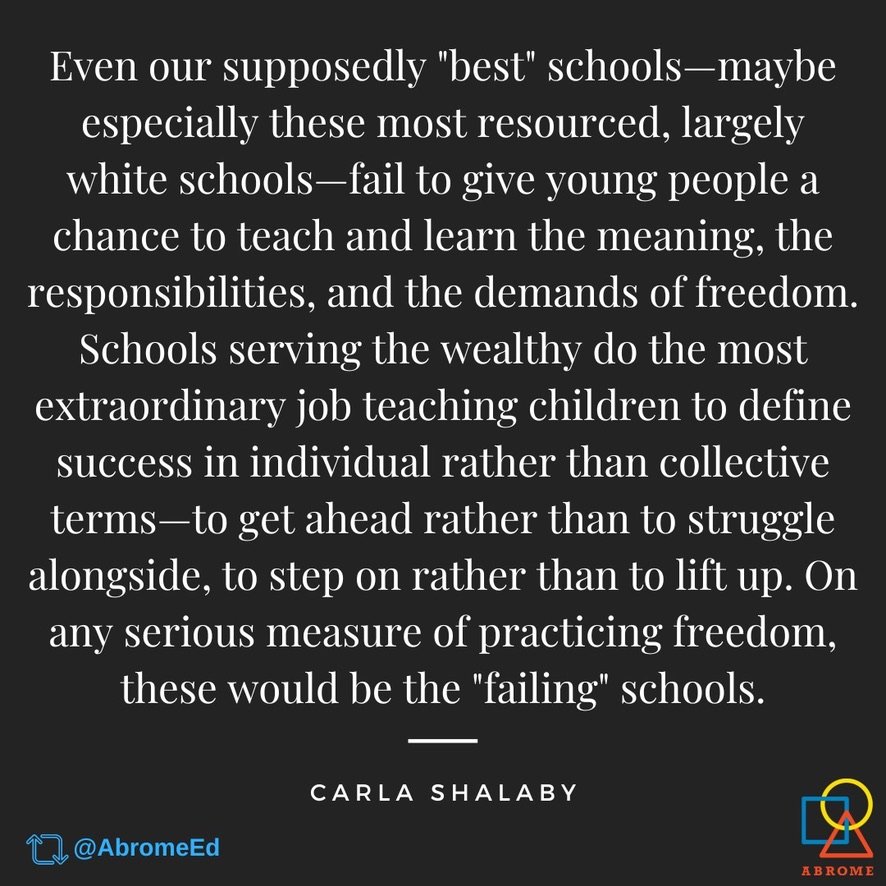Families who have the means to do so will choose where to send their kids to school (public or private) based on a variety of factors such as price, proximity to home, average class size, education philosophy, clubs and extracurricular activities, and the colleges the school’s graduates get into. Families rarely get everything they want out of a school because many of their wants cannot coexist in a school setting. So, families are forced to prioritize their wants.
But there is more to the decision process than where various schools land on each of the preferred factors. There is the motive behind sending a child to school in the first place. And that motive, for the great majority of people, almost always revolves around, “what school is going to do to make my child ‘successful’?” And success as measured by schools means testing and academic performance and sometimes college placement; and by society it generally means the prestige of the colleges and jobs the students end up gaining access to, as well as their potential future earnings.
And because most families are members of dominant society, and are enculturated by it, their motivations and prioritized wants become a response to their own anxieties and notions of scarcity. They think in individual rather than collective terms. They focus on the “best” schools for their kids, choosing security over liberation, and what helps their kids get ahead even if it is at the expense of other kids or society. And the schools give them the assurances they need to keep the kids enrolled. And then, too often, the families bemoan the state of society. The same society their kids will grow old in.
Our recommendation: be different.
“Even our supposedly "best" schools—maybe especially these most resourced, largely white schools—fail to give young people a chance to teach and learn the meaning, the responsibilities, and the demands of freedom. Schools serving the wealthy do the most extraordinary job teaching children to define success in individual rather than collective terms—to get ahead rather than to struggle alongside, to step on rather than to lift up. On any serious measure of practicing freedom, these would be the "failing" schools.”
~ Carla Shalaby


